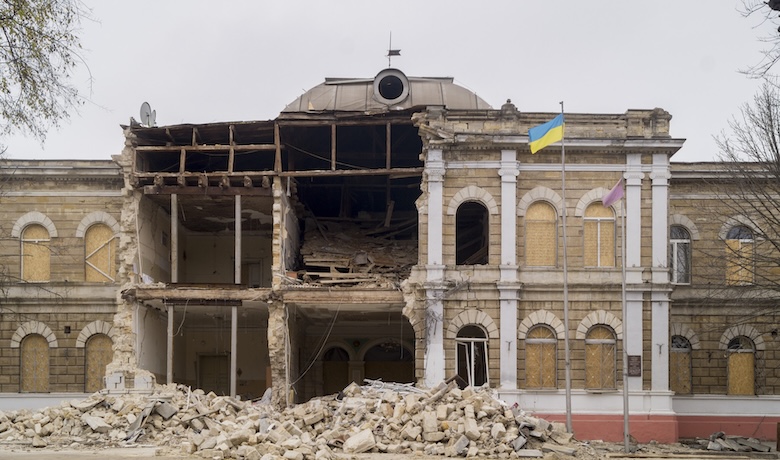I
n May 2025, the Institute for the Study of War (ISW) reported that Russia is inventorying real estate in occupied Ukraine to seize property from Ukrainian residents. This effort may be part of a plan to transfer Russian citizens to occupied territories. According to ISW, Deputy Prime Minister Marat Khusnullin stated that 251,750 real estate objects in occupied Ukraine were entered into the Russian Unified State Register of Real Estate.
Petro Andryushchenko, a former advisor to the mayor of Mariupol, claimed that Russia's actions indicate an intent to nationalize all inventoried real estate objects in occupied Ukraine. This would essentially "loot" property from its Ukrainian owners. The practice could signal a significant escalation of Russian expropriation activities, which were condemned by the UN's Office of the High Commissioner for Human Rights (OHCHR) last year.
The OHCHR report noted that Russian authorities in Ukraine adopted legislation on the expropriation of residential "abandoned property" in occupied territory. Individuals must prove ownership or risk having their property transferred to local occupation authority councils, which is prohibited under international law. The law of armed conflict (LOAC) prohibits an occupying power from confiscating private property and bars far-reaching changes to the existing legal order of occupied territory.
This post examines two issues raised by these reports: the seizure of private property during occupation and the transfer of an occupying power's citizens into occupied territory. It begins by surveying the law governing an occupying power's seizure of private property, which includes confiscation, requisition, and expropriation. The general rule is that private property must be respected and may not be confiscated, except in cases where destruction or seizure is required by imperative military necessity.
The Hague Regulations and Geneva Convention IV provide specific rules regarding the treatment of public and private property during occupation. Public property can be seized for military operations, but immovable public property must be administered according to the rule of usufruct. Private property, on the other hand, cannot be confiscated, and any acts that permanently or temporarily deprive the owner of its use without consent or authority under international law are prohibited.
Russia's actions in Ukraine would violate these rules, as they involve the seizure of private real estate without military necessity. The transfer of an occupying power's citizens into occupied territory is also prohibited under LOAC and customary international law. Article 49 of Geneva Convention IV explicitly prohibits deporting or transferring parts of one's own civilian population into occupied territory.
The International Court of Justice has interpreted this provision to include any measures taken by an occupying power to organize or encourage transfers of its own population into the occupied territory. The UN Security Council has consistently condemned Israeli settlements as a breach of the Fourth Geneva Convention, and the transfer of an occupying power's citizens into occupied territory is considered a war crime.
In conclusion, the law of belligerent occupation clearly prohibits both the seizure of private real property and the transfer of an occupying power's nationals into occupied territory. These actions contravene longstanding LOAC rules enshrined in the 1907 Hague Regulations and the Geneva Convention IV, as well as customary international law. The reported Russian practices not only violate LOAC strictures but also may amount to war crimes that any State may prosecute.














